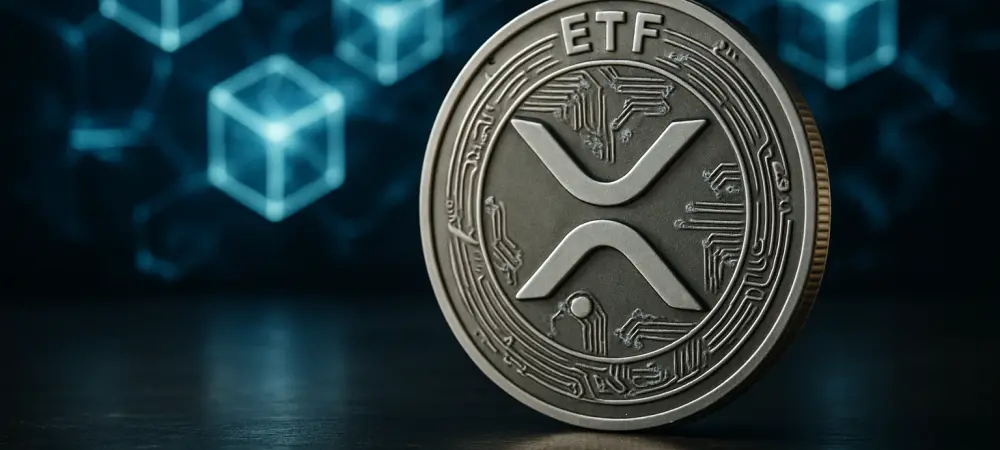I’m thrilled to sit down with Nicholas Braiden, a true pioneer in the blockchain space and our resident FinTech expert. As an early adopter of blockchain technology, Nicholas has been at the forefront of advocating for its transformative power in digital payments and lending systems. With years of experience advising startups on leveraging cutting-edge tech to drive innovation, he’s the perfect person to help us unpack the latest developments surrounding XRP ETFs and the broader crypto market. In this conversation, we’ll dive into the fluctuating odds of XRP ETF approvals, the surprising stability of XRP’s price, global interest in XRP-based financial products, and the regulatory challenges shaping the future of crypto exchange-traded products.
What’s behind the recent drop in spot XRP ETF approval odds from 86% to 62% in just a few days?
Well, Daisy, the sharp decline in approval odds, as reflected in Polymarket data, seems to be tied to renewed regulatory skepticism. A key trigger was the vocal opposition from SEC Commissioner Caroline Crenshaw, who has made it clear she’s not on board with crypto ETFs. Her stance, especially as the sole dissenter in recent SEC votes, has spooked some market participants. Additionally, there’s lingering uncertainty about how the SEC interprets XRP’s status post their updated listing criteria. While XRP now meets certain requirements like having derivative trading activity for over six months, the broader regulatory mood—especially with Crenshaw’s influence—has cast a shadow over the earlier optimism.
How do you interpret the stability of XRP’s price around $3.05 despite this dip in ETF approval odds?
It’s fascinating, isn’t it? I think XRP’s price holding steady at about $3.05 shows that investors aren’t letting ETF speculation dictate their confidence in the asset. There’s a strong belief in XRP’s underlying utility, particularly with Ripple’s focus on cross-border payments. Plus, other market dynamics—like growing institutional interest and positive developments overseas—might be providing a buffer. It suggests that while ETF approval would be a nice bonus, many holders see value in XRP beyond just that narrative.
There’s been buzz about a potential BlackRock XRP ETF. How likely do you think this is, given their status as the world’s largest asset manager?
The speculation around BlackRock entering the XRP ETF space isn’t entirely far-fetched. As the biggest asset manager globally, they have the clout and resources to navigate complex regulatory landscapes, much like they’ve done with Bitcoin and Ethereum ETFs. Their involvement would signal a massive vote of confidence in XRP and could accelerate mainstream adoption. However, it hinges on regulatory clarity in the U.S., which is still murky. If they do push forward, it’s likely because they see a maturing market for XRP and a path to overcoming SEC hurdles.
Ripple’s partner, SBI Holdings, recently filed for a Bitcoin-XRP dual ETF in Japan. What does this say about the global appetite for XRP-based products?
This move by SBI Holdings is a strong indicator that interest in XRP isn’t confined to the U.S. Japan has been a progressive market for crypto innovation, with a regulatory framework that’s more accommodating than many Western counterparts. A dual ETF combining Bitcoin and XRP shows confidence in XRP’s unique value proposition alongside the market leader. It reflects a growing global demand for diversified crypto investment vehicles and could inspire similar products elsewhere if successful. It’s a reminder that while the U.S. debates, other regions are forging ahead.
SEC Commissioner Caroline Crenshaw has been a consistent voice against crypto exchange-traded products. What’s driving her opposition, in your view?
Crenshaw’s stance appears rooted in a deep concern about investor protection and market stability. As the lone Democrat currently on the Commission, she may feel a responsibility to push back against what she sees as insufficient oversight in the crypto space. Her repeated 3-1 dissenting votes signal a fundamental disagreement with the pace of crypto ETF approvals. She’s also critical of broader crypto policies, like liquid staking, which she argues lack legal grounding. Her position is likely driven by a belief that the risks—volatility, fraud, and regulatory gaps—outweigh the benefits for retail investors at this stage.
The SEC recently greenlit in-kind creation and redemption for Bitcoin and Ethereum ETFs. How might this influence the path forward for an XRP ETF?
This is a significant step because in-kind mechanisms make ETFs more efficient and cost-effective for both issuers and investors. For Bitcoin and Ethereum, it’s a sign of maturing infrastructure and regulatory comfort with these assets. For XRP, it could set a precedent if the SEC views it as similarly established in terms of market structure. However, the hurdle remains whether XRP can clear the same regulatory scrutiny, especially with dissenting voices like Crenshaw’s. If that barrier is crossed, this approval could pave the way for smoother operations of a potential XRP ETF.
What’s your forecast for the future of XRP ETFs in the U.S. amidst these regulatory and market dynamics?
Looking ahead, I think the path for XRP ETFs in the U.S. will remain bumpy in the near term due to regulatory headwinds, particularly with influential skeptics at the SEC. However, the global momentum—seen in moves like SBI Holdings’ filing in Japan—and XRP’s compliance with updated listing criteria could pressure the SEC to soften over time. If major players like BlackRock throw their weight behind it, that could be a game-changer. I’d say we’re looking at a cautious but gradually improving outlook, potentially with approvals materializing in the next 12 to 18 months if political and regulatory landscapes shift favorably.

